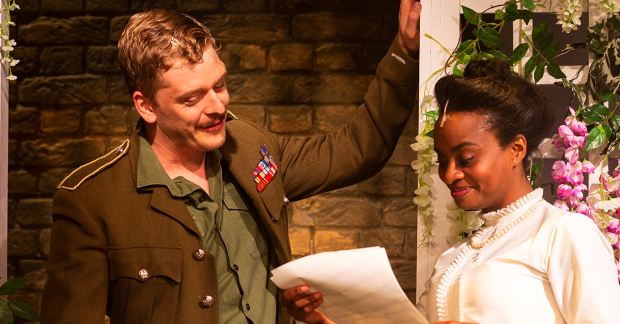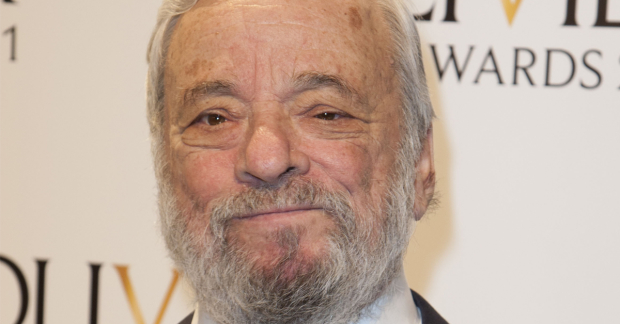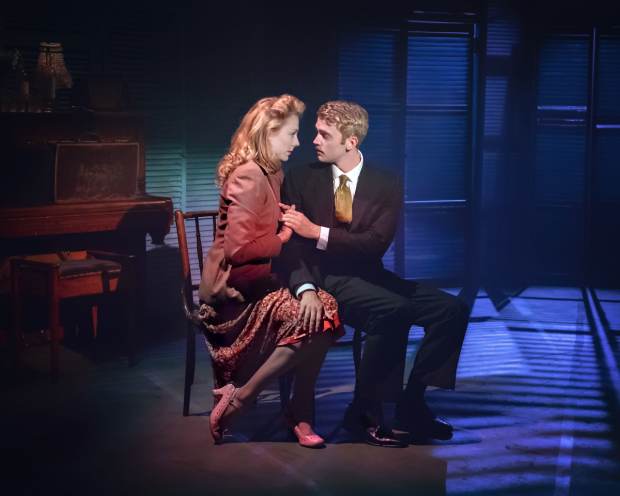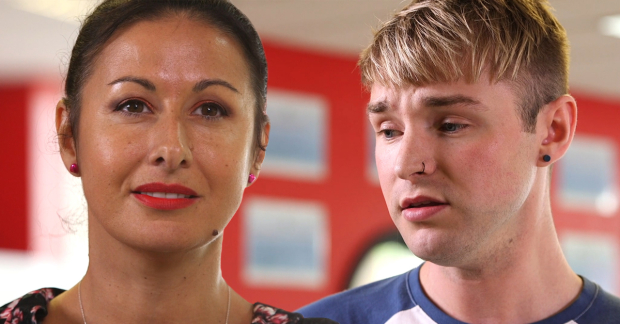Review: The Return of the Soldier (Hope Mill Theatre)

© Phil Tragen
Rebecca West's debut novel, published 100 years ago at the dismal fag-end of the First World War, threw a prophetic light on the cataclysmic effect the conflict had on both the men it spat out from the jaws of the trenches and the folk that were left at home. West exposed a shell-shock that shredded the minds of the fighting men, but also managed to claw its way into the very bones of British society, leaving a bewildered people in its wake.
In Charlotte Westenra's powerful chamber production at the Hope Mill, the themes and complexities of the novel are faced head-on and eked out admirably: the class system creaks, women's perceptions of themselves and their place is blurred, the notion of masculinity is fatally undermined and the nature of truth and reality are questioned – all with unknown consequences.
Upper-crust Captain Chris Baldry (a perfectly cast Chris Jenkins) – already acutely scarred by a hidden trauma held deep within himself – finds escape from the inhumanity and rotting corpses of the Front in the solace and peace of a long-abandoned love. Indeed, he falls so profoundly for the working-class Margaret Grey (Naomi Slights) that he forgets he
has a wife at home. Which is awkward.
The feisty wife (Tessa Kadler) and an infatuated cousin (Esme Sears) can only stand by and watch as Chris' fragile ego disintegrates and his love for the 'dowdy' Margaret gains manifest intensity. Chris Jenkins tears away at Baldry's masculinity touchingly and convincingly; curling up, foetus-like, both literally and metaphorically. Folding himself into a place of greater safety.
Likewise, a wonderfully nuanced Marc Pickering as Margaret's husband William Grey, allows his cheery chappy George Formby-esque carapace to be peeled away with a touching delicacy. (His doubling up as a Freudian psychotherapist is a highlight, with shades of Coward in "You can't confront the Western Front with cups of tea and sympathy.") As you'd expect at the Hope Mill, Daniel Jarvis' orchestration and the
actors' pitch are lush and exact, the mood and melody cleverly and movingly united by Tim Sanders (book) and Charles Miller (music), and there are some corking numbers and passionate deliveries.
But I remain conflicted. Somehow, the overall direction lacks a lightness and shade, it's too constricted and constricting, it sits heavily on the actors and there's consequently too much front-facing exposition and not enough humanity about the exchanges.
A certain pervading stiffness could be construed as a metaphor for Englishness, but here it just looks unnatural and clumsy. Braver, bolder, more relaxed direction may have allowed the performances more freedom to fly. There's no denying that all the elements are here; all the notes in the right order, and some great performances. But there are too few surprises. I wanted less No Man's Land and more whizz-bangs. This little jewel feels a tad rusty.















